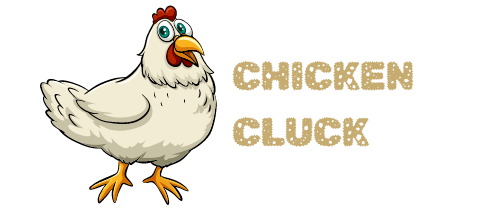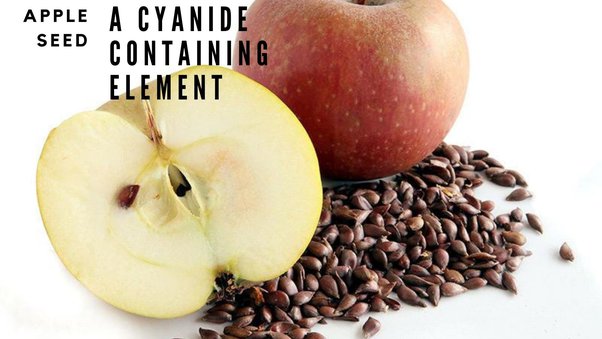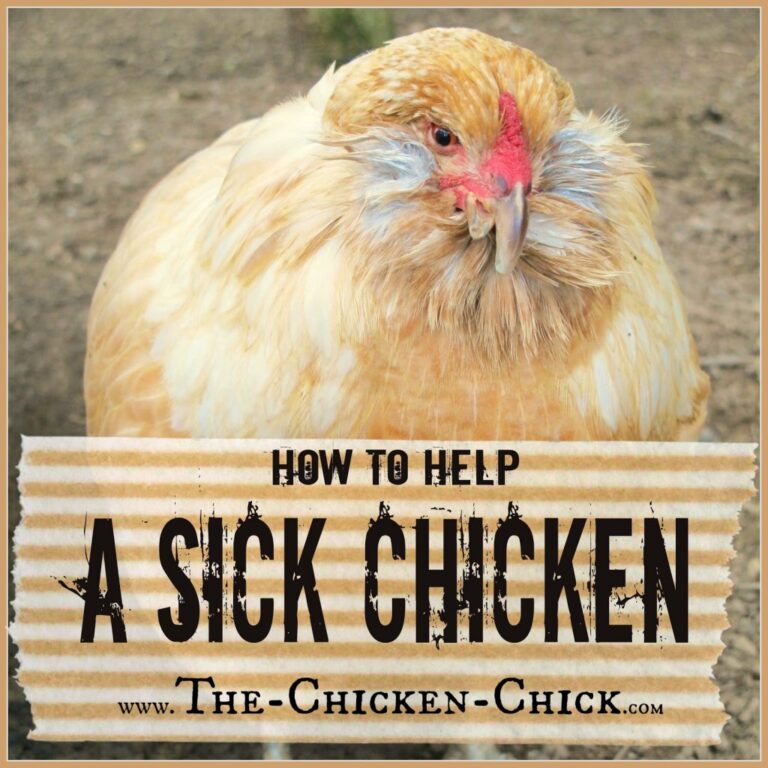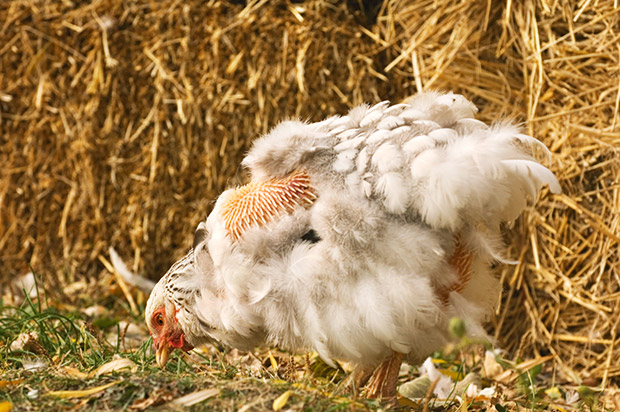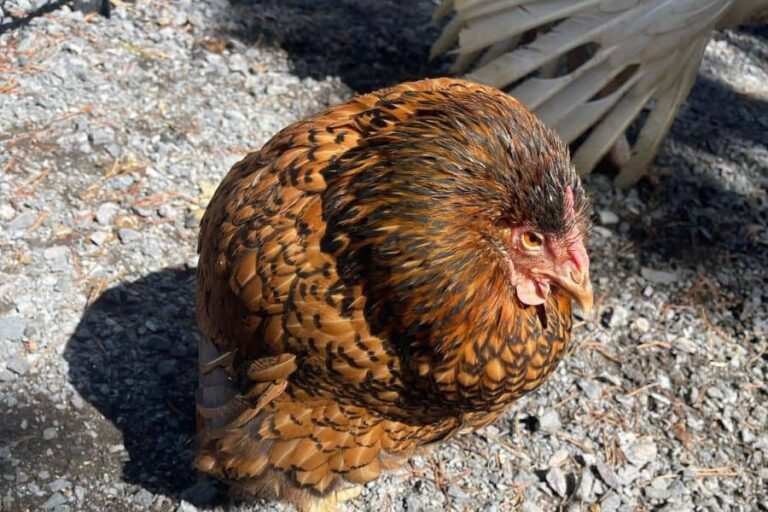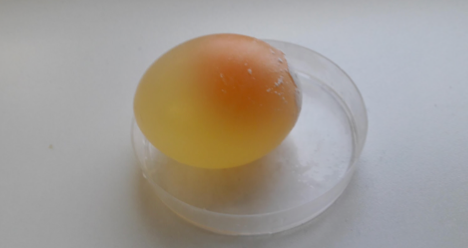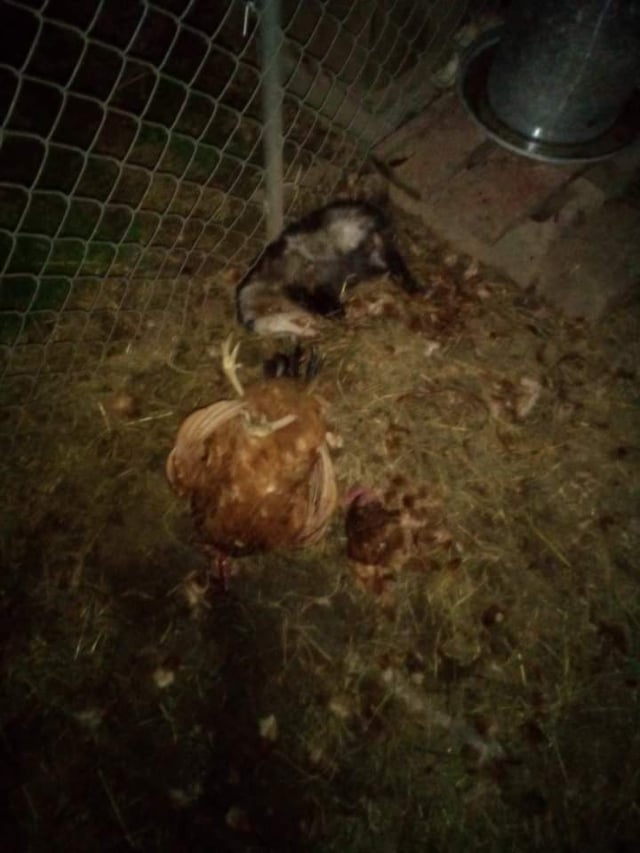It generally takes a significant quantity, over 100 apple seeds, to fatally poison a chicken due to cyanide. This is because seeds contain only small amounts of the toxin.
Chickens pecking around the orchard may occasionally consume fallen apples, which could lead to a concern about the safety of apple seeds. These seeds contain amygdalin, a compound that can release cyanide when metabolized. However, for a chicken to reach toxic levels, it would have to consume a large number of seeds.
Owners should understand that while the risk is relatively low, it is still prudent to keep an eye on their flock’s access to apple seeds. The natural foraging instinct of chickens does mean that they might ingest small amounts of seeds, but typically not enough to cause harm, making it a manageable risk for backyard poultry enthusiasts.

Credit: www.britannica.com
The Toxicity Of Apple Seeds
Understanding the toxicity of apple seeds is crucial when considering the dietary habits of chickens. These seeds contain a compound that has the potential to release cyanide, a toxic substance, when digested. But how much is too much for a chicken? Let’s delve into the science behind it.
Cyanide In Seeds
Apple seeds carry a natural compound called amygdalin. When chewed or crushed, this compound breaks down into hydrogen cyanide. Hydrogen cyanide is a potent poison. In large enough quantities, it can be harmful.
- Minute amounts of cyanide can be detoxified by a chicken’s body.
- Excessive consumption leads to health risks.
- Signs of poisoning include difficulty breathing, seizures, and collapse.
Seed count matters. Not all apple seeds have the same level of amygdalin.
Chicken Physiology And Toxins
Chickens have unique bodies. Their metabolism is fast. They process toxins differently from humans. However, they can still be at risk.
| Chicken Size | Risk Level |
|---|---|
| Small Breed | Higher Risk |
| Large Breed | Lower Risk |
- Consider the chicken’s size and weight.
- Monitor their apple intake.
- Remember not all treats are safe in large quantities.
A few apple seeds may not harm a large chicken; however, smaller breeds are more vulnerable. A large number of seeds can be dangerous for any chicken.

Credit: www.usatoday.com
How Chickens Process Food
Understanding how chickens digest their food is crucial when considering their safety around various substances, including apple seeds. Chickens have a unique digestive system that allows them to process a variety of foods. This includes the ability to metabolize certain toxins, but not all. Before we dive into the details about the toxicity of apple seeds, let’s understand how chickens break down their food.
Digestive System Of A Chicken
Chickens are birds with a digestive system designed to extract nutrients from a diversified diet.
- Beak: They pick food with their beaks.
- Esophagus: Food travels down to the crop.
- Crop: Food is stored and softened.
- Proventriculus: Gastric juices start digestion.
- Gizzard: Hard muscles grind the food.
- Small Intestine: Nutrients are absorbed here.
- Large Intestine: Absorbs water and passes waste.
Metabolism Of Toxins
Chickens can metabolize certain toxins thanks to their liver, an essential organ that neutralizes poisons. However, the species’ ability to detoxify depends on several factors:
- Liver size and health: A larger, healthier liver is more efficient.
- Toxin type: Not all toxins are processed the same way.
- Dosage: A larger amount of toxins can overwhelm the liver.
Chickens handle some toxins well, but not all. For example, apple seeds contain cyanide, which can be harmful in large quantities. Important to know is that chickens usually will handle small quantities without issue. It is the dose that makes the poison.
Myths And Facts About Apple Seeds
Welcome to the intriguing world of apple seeds and their effects on chickens.
Common myths swarm around the potential dangers apple seeds might pose.
Let’s unearth fact from fiction.
Common Misconceptions
Discussions often spiral out of control, spreading false information.
- Myth #1: “A single apple seed can kill a chicken.” This statement is untrue.
- Myth #2: “All apple seeds contain the same level of toxins.” Actually, the toxin amount varies.
- Myth #3: “Chickens instinctively avoid apple seeds.” Some chickens might not.
Scientific Perspectives
Science offers clarity on this subject.
Apple seeds contain amygdalin, which can release cyanide when digested.
Danger arises from large quantities.
| Dosage | Effect |
|---|---|
| Low | No Harm |
| High | Potential Risk |
Researchers suggest it takes a considerable amount, far more than casual consumption, to harm a chicken.
- Digesting few seeds poses minimal risk.
- Eating crushed seeds in large volume increases hazard.
Keep chickens away from seed-heavy apple cores.
Practice governed feeding to ensure their safety.
Lethal Doses And Limits
The idea that apple seeds can be toxic to chickens is alarming. Apples, a nutritious fruit, carry a hidden danger in their seeds. These seeds contain a compound that can release cyanide, a potent poison, when digested. Understanding the lethal doses and limits of cyanide that chickens can withstand is crucial. It can be the difference between a healthy flock and a tragic loss.
Calculating Cyanide Content
Apple seeds contain amygdalin, a substance that turns into cyanide in the stomach. To calculate the cyanide content in apple seeds, consider both the number of seeds and the size of the chicken. Different apple varieties might have different levels of amygdalin.
| Apple Variety | Seeds per Apple | Amygdalin per Seed (mg) |
|---|---|---|
| Red Delicious | 5 | 0.6 |
| Granny Smith | 6 | 0.5 |
Knowing the average weight of a chicken is important. Small breeds may be at higher risk than larger ones. A mathematical approach allows for a more accurate assessment of risk.
Safe Consumption Thresholds
Chickens have varying levels of tolerance to toxins. A safe consumption threshold refers to the maximum amount of apple seeds a chicken can eat without harm. This amount is surprisingly small due to cyanide’s potency.
- Research indicates that chickens can tolerate up to 0.1 mg of cyanide per kilogram of body weight.
- A safe guideline is to keep apple consumption, seeds included, to less than 2% of the chicken’s daily diet.
To prevent cyanide poisoning in chickens, remove apple seeds before offering the fruit. This simple step ensures your chickens enjoy their treat risk-free. Always remember, moderation and awareness go a long way in protecting your flock.
Effects Of Cyanide On Chickens
Understanding the effects of cyanide is crucial when considering the risks of apple seeds to chickens. Although apple seeds contain cyanide compounds, it takes a substantial amount to affect a chicken. Cyanide interferes with essential oxygen transport, causing serious health issues or even death. Here’s what you need to know about its effects on your feathered friends.
Symptoms Of Poisoning
Chickens exposed to cyanide may show immediate symptoms of distress. Be on the lookout for the following signs:
- Difficulty breathing as oxygen transport falters
- Physical weakness or paralysis
- Convulsions or spasms signaling neural distress
- Reddened mucous membranes from hypoxia
If you observe these symptoms, seek veterinary care promptly. Early detection is key to preventing more severe outcomes.
Long-term Health Implications
Chronic exposure to low doses of cyanide can lead to long-term health issues in chickens. These include:
| System Affected | Possible Damage |
|---|---|
| Neurological | Impaired coordination |
| Respiratory | Reduced oxygen efficiency |
| Cardiovascular | Irregular heartbeats |
Protect chickens by monitoring their diet and environment to avoid accidental ingestion of harmful substances. Regular health checks can thus safeguard against these insidious dangers.
Feeding Practices For Backyard Chickens
Feeding practices for backyard chickens ensure their health and happiness. A balanced diet, rich in nutrients, is key. Yet, understanding what is safe and what is harmful is crucial for chicken owners. So, let’s dive into what foods are appropriate and which ones to avoid for your feathery friends.
Appropriate Foods
Chickens enjoy a variety of foods that offer them the nutrition they need. A list of safe options includes:
- Grains like wheat, rice, and oats
- Vegetables such as carrots, kale, and squash
- Proteins like mealworms and cooked eggs
Include these staples in their diet:
| Food Type | Examples | Benefits |
|---|---|---|
| Grains | Corn, Barley | Energy |
| Greens | Lettuce, Spinach | Vitamins |
| Protein | Cooked meat | Growth |
Foods To Avoid
Certain foods can be toxic to chickens. Some might even be fatal if consumed in large quantities. You must avoid these:
- Avocado skin and pit (contains persin)
- Chocolates and sweets (contains theobromine)
- Green potato skins (contains solanine)
- Onions (can cause anemia)
Particularly: apple seeds. They contain cyanide, which is hazardous. While it generally takes a sizable amount to be lethal, it is best to err on the side of caution. Always remove seeds before offering apples to chickens.
Preventing Accidental Poisoning
Preventing accidental poisoning in chickens is crucial for every poultry keeper. Chickens, curious by nature, nibble on many things they come across. Among these could be apple seeds, which contain amygdalin. When ingested, this compound can release cyanide, a potent toxin. It doesn’t take many apple seeds to harm a chicken, so prevention is key. Keep your chickens safe with these effective strategies.
Secure Food Storage
Here are some tips to keep food and seeds out of your flock’s reach:
- Use containers: Store leftover fruit, including apples, in sealed containers that chickens cannot open.
- Clean up: Remove garden waste and fallen fruits promptly to eliminate temptation.
- Chicken-proof areas: Protect compost bins and areas with potentially toxic plants by using fences or covers.
Monitoring Your Flock
Observation is vital to prevent poisoning. Look for these signs:
| Behavior Change | Possible Cause |
|---|---|
| Unusual quietness | Potential ingestion of toxins |
| Refusal to eat | Feeling sick from poisonous food |
Regular checkups with a vet can ensure your flock remains healthy and safe. Never let chickens roam in areas with hazardous items. Stay alert to avoid any tragic incidents linked to poisoning.

Credit: www.walkervillevet.com.au
Emergency Response
When a chicken consumes apple seeds, it could be in danger. The seeds contain cyanide, which is toxic. Understanding the signs of poisoning and knowing how to react can save your chicken’s life. Quick action is crucial. Spot the signs early and be prepared to respond with emergency care.
First Aid For Poisoning
Here’s what you can do immediately if you suspect your chicken has eaten apple seeds:
- Remove any remaining seeds to prevent more ingestion.
- Keep the chicken calm and limit its movement.
- Offer it fresh water to drink.
- Try to induce vomiting only if advised by a professional.
Time matters. Act fast but carefully. Do not wait for symptoms to worsen.
When To Contact A Veterinarian
Contacting a veterinarian should be your next step. Here are clear signs when to do so:
- If your chicken shows any distress, such as breathing issues.
- When the chicken appears lethargic or unresponsive.
- After you’ve administered first aid and no improvement is seen.
Provide the vet with details about the amount of seeds ingested and the chicken’s size. Quick vet intervention can make a difference.
Future Research And Education
Contemplating the impact of apple seeds on chickens, the need for future research is undeniable. To fully understand the effects of the cyanide in apple seeds, and to decisively answer the question of how many seeds can be fatal, continued scientific investigations are necessary. Knowledge empowers poultry owners to make informed decisions. This section highlights the key areas where advancements will drive change and enhance the wellbeing of our feathered friends.
Advancements In Avian Toxicology
Advancements in avian toxicology are crucial. Researchers around the world work tirelessly to ensure healthier lives for chickens. Their goals include understanding cyanide toxicity at a molecular level and finding safe apple seed thresholds.
- Identify genetic factors influencing toxicity levels
- Develop non-invasive testing methods for early detection
- Formulate guidelines for safe fruit seed consumption
Raising Awareness Among Poultry Owners
Educating poultry owners significantly reduces the risks associated with apple seeds. Information should be clear, accessible, and actionable. Workshops, brochures, and online platforms are key in spreading awareness.
- Organize community workshops on feed safety
- Create informative brochures for distribution
- Launch a dedicated website with up-to-date research findings
With ongoing research and education, minimizing the threat posed by apple seeds is achievable. Keeping chickens safe is a priority for a sustainable and ethical approach to poultry farming.
Conclusion
Wrapping up, the exact lethal dose of apple seeds for chickens varies. Yet, even small amounts can be dangerous due to cyanide. Always monitor your flock’s diet closely. Prioritize their health by avoiding risky foods. Keep apple cores and seeds out of reach to ensure their safety and well-being.
